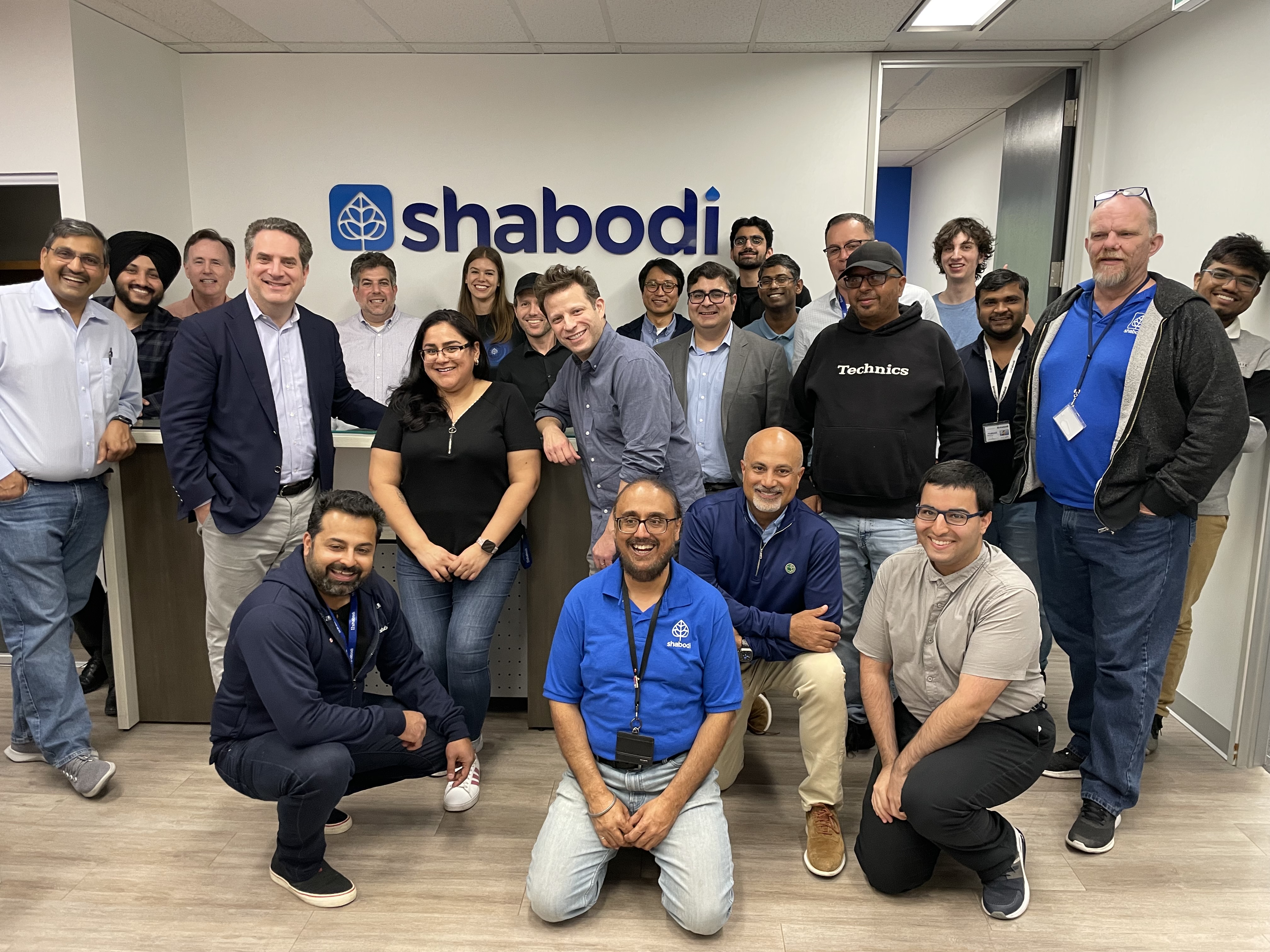This page has moved to the Defense Innovation Unit
You are being redirected to DIU.mil
This page has moved to the Defense Innovation Unit
You are being redirected to DIU.mil
We use cookies for analytics, to see our policy, please read our Privacy Policy.

During a mission, a warfighter gets wounded and needs treatment immediately to save their life. The injury is more complicated than anyone in the unit knows how to help. Racing against the clock, the unit uses a secure video connection to speak with a doctor who can walk them through the steps to save the warfighter’s life.
At that moment, there is nothing more important than that video call. A poor connection or a dropped feed can mean the difference between life and death. That’s where NSIN Propel alumni company Shabodi provides immediate value.
Shabodi’s Application Enablement Platform (AEP) technology allows traffic prioritization, enabling applications to always work when needed without interruption. This is a real-time scenario where Shabodi’s first-to-market platform enabled enterprise developers to leverage the full suite of capabilities that advanced networks such as 5G unlock, to build a first-ever “network aware” application.
“In this scenario, Shabodi enables secure and reliable communication channels between first responders and emergency medical personnel to deliver situational awareness and remote expert guidance during emergency medical situations,” said Shabodi CEO Vikram Chopra. “Shabodi prioritizes in real-time all the traffic on the network so that applications always have the bandwidth they require.”
To illustrate, Chopra made a simple comparison to a remote worker’s home wireless network. Someone with an important video call would want to prioritize network traffic to support their meeting application over any other application running on their network such as Netflix, Spotify, or Instagram. They may also want the network to ensure the Netflix stream in the next room continues uninterrupted to keep the kids entertained until the call ends.
With the help of Propel, Shabodi applied its leading-edge technology to DoD challenges. The company’s technology had potential use-cases within the DoD that went beyond ensuring the quality of a critical video call. Shabodi discovered its platform could become valuable anywhere 5G enhanced applications are being built and deployed, empowering tools such as augmented reality, digital twins, real-time data mapping, and more.
Shabodi showed AFRL how the organization might leverage AEP technology. DoD organizations like AFRL are transitioning to 5G to take advantage of the advanced technologies that 5G networks enable and to benefit from 5G’s enhanced security protocols that protect critical information and infrastructure. Throughout the Propel cohort, Shabodi and AFRL collaborated on how AEP could be part of the DoD’s 5G future, and how Shabodi’s platform might enable the government to build network-agnostic applications while seamlessly transitioning those applications to additional advanced networks in the future. NSIN Propel has done the work to prepare its cohorts of early stage ventures to provide this competitive technical advantage. With product development resources, the guidance of mentors from the commercial sector, academia, private capital, and the government, and opportunities for direct engagement with DoD stakeholders,cohort members improve their technology and strengthen their understanding of customer needs.
“Working with NSIN and going through the Propel program provided an additional layer of credibility, as it provides a path for early stage scaleups to build a direct commercial relationship with the U.S. Government,” Chopra said.
While Shabodi continues to develop its technology and make it available for deployment within DoD, the firm will continue to create new partnerships with leading partners to get the technology spread to new use cases.
The company recently collaborated with Booz Allen Hamilton and 5G Open Innovation Lab (5G OIL) to prototype the Mobile Medic application, which aims to provide secure and reliable video communication channels between first responders and emergency medical personnel. This allows first responders on the scene to benefit from the expertise of the medical professionals, who in turn can provide better remote patient assessments with the help of reliable video from the scene.
On a larger scale, important processes such as commercial operations can benefit from the same AEP prioritization, keeping the most critical systems operating smoothly in times of lower bandwidth. In cognitive cities, smart mining, autonomous ports, or factories of the future such capabilities are mission critical to ensure the successful rollout of industry 5.0 technologies that go beyond providing efficiency and instead contribute to the success of society.
The future looks bright for Shabodi. Awarded 2023 Enabling Tech Award in recognition of the potential impact of the company’s AEP, the team continues to push ahead on the product, breaking into the commercial market with a solution that helps organizations leverage advanced networks, save application development time, and increase their return on investment.
About National Security Innovation Network
NSIN is a program office in the U.S. Department of Defense, nested within the Defense Innovation Unit (DIU). We are set up to collaborate with a wide variety of innovators to include universities, researchers, students, entrepreneurs and start-ups. We create opportunities for collaboration across communities and connect those that might not traditionally work in national security. Together, we help drive national security innovation and develop technologies that directly support the individuals responsible for protecting our country.
For more information or interview requests with Team NSIN, please contact us at media@nsin.mil.
Your browser is old and unsupported. You may still use the site, but functionality will be limited and you may see errors. Please consider updating your browser.